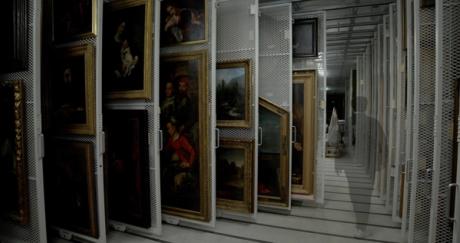
“Life has an excess of meaning”—so someone says early on in He Thought He Died, an experimental feature that premiered this week in the adventurous Wavelengths strand of the Toronto International Film Festival (Tiff). The line recurs at the end of the film as well. It is the function of art, the speaker continues, to pare away this excess, to subtract from life and thereby clarify it.
This is a striking contention in the context of He Thought He Died, directed by Isiah Media, whose own art, characterised by associative and abrasive editing schemes, torrents of heterogeneously sourced sounds and images, possesses that same lifelike excess. In Medina’s 2015 breakthrough 88:88, a rapid-fire assemblage of footage of his network of family and friends evoked the textures of economic precarity in an age of digital abundance, and the glitchy and unpredictable impression of being a passenger in someone else’s perception. Inventing the Future(2020) is an essay film adapted from the same-titled Verso manifesto, wielding Medina’s syncretic style in the service of a futurist vision for a post-work Leftist utopia.
Like a figurative painter, Media seems to be worrying at his medium, pulling it toward and pushing it away from representation simultaneously: nimble digital cameras are attentive to light and handy for jotting down impressions of everyday experience, while editing and post-production software allow for radically disjunctive cutting and distorted image-making. And with He Thought He Died, Medina trains his restless gaze on the past and future of visual art directly, as both representation and commodity. The film was made with extensive access to Kingston, Ontario’s Agnes Etherington Art Centre, part of Queen’s University, with its collection of Rembrandts and First Nations artefacts, seen both on the walls and in climate-controlled stacks of basement storage. Medina himself appears in the film alongside some of his own Ab-Ex daubings-in-progress; as he works, amidst a deluge of other audio-visual data, images take on the plotless Expressionist materiality of paint layered on canvas.
Tiff’s program notes would have you believe that He Thought He Died is a kind of art heist movie, in which Medina liberates his work from the institution that warehouses it; this is very misleading, though ghostly superimpositions of the painter wandering the bowels of the museum do suggest traces of an individual sensibility waiting to be emancipated. A recurrent motif depicting art handlers at work culminates with a point-of-view shot from the perspective of a painting as it’s entombed in its (literal, metaphorical) packaging.
Medina’s stream-of-consciousness jumps between home videos set to atonal improvisation, rhythmic exercises set to Bach or Wagner, vaporware computer animations and violent strobing effects; his dialogue scenes are similarly discursive. Two figures (“characters” is a stretch) sit opposite each other in a sterile business-class hotel room, slinging one-liners at each other—about rights and duties, genius and goodness, junk and discourse. One says: “Shooting close-ups is ‘keeping up’, it is non-thought.”
Medina is clearly influenced by the communist school of intellectual montage, didactically and propulsively producing meaning from juxtaposition; it would be overpromising to call his nakedly imitative sloganeering “Godardian” (even if Medina is similarly Mao-curious), but the open-ended flow of his dialectics is challenging and confusing in ways that feel relevant. He Thought He Died feels like a feed, at the end of which it’s hard to remember where, exactly, you came into contact with a socialist meme or a pretty picture, or to be sure that you’re recalling it exactly as it appeared.
All films, especially non-narrative films, teach you how to watch them; Medina’s instructions often amount to a form of aversion therapy, bopping you on the nose with a rolled-up newspaper whenever he catches you sniffing for linear causality. In one scene, the apparent sale of several paintings is transacted in dialogue entirely warped by voice-box mumbling. But he’s painting in broad strokes—step back a little, note the high-rises out the window, and think about an ever-shifting matrix of art and capital.
- He Thought He Died, 13 September at 10pm, TIFF Bell Lightbox, Toronto International Film Festival










